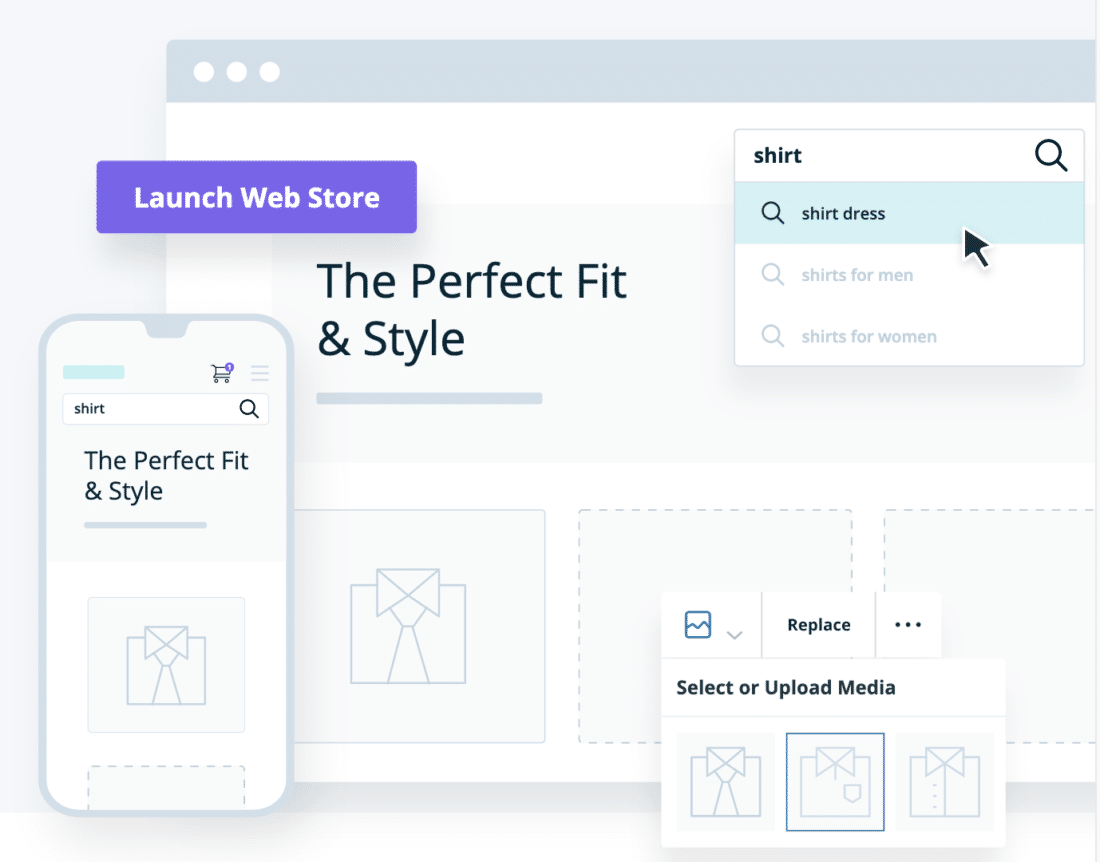For companies that rapidly need to digitalize, they can actually pick up speed with WordPress.
Magne Ilsaas is CEO and Founding Partner at Dekode, a creative and digital agency specializing in web design and development. Dekode is also a WordPress VIP Partner with expertise in WordPress development. Their clients include Facebook, Blue Cross Norway, and the Organ Donation Foundation.
In this episode of Velocitize Talks, Magne Ilsaas shares his insights into developing WordPress platforms for the enterprise, WooCommerce and keeping a long-term perspective.
Working Through Covid (1:12)
As consumers we’re more ready for digital services now…The average companies aren’t there anymore so either you understand it and you can thrive on it or you don’t.
Although some agencies undoubtedly saw less activity in 2021, Dekode experienced its best year yet. Ilsaas attributes this partly to having successful digital strategies already in place right before Covid, which helped to speed up the process during the pandemic. In that timeframe an estimated one-third of businesses increased their use of digital technologies to respond to higher consumer demand.
As with many other companies, Dekode has provided extra support to their employees due to Covid burnout. To do this they needed to somewhat lower expectations and provide additional sick leave where needed. At the end of the day, according to Ilsaas, your employees need to know that you’re there for them.
Multi-Purpose, Multi-Site (4:04)
We work with bigger organizations where it’s never one site, it’s 10, 15, 50 sites. To approach [something] from a design system perspective and make it a flexible tool for them is really enabling.

During Norway’s 2020 election, Dekode worked with the ruling Conservative Party of Norway (Høyre) on its digital strategy and solutions using WordPress. This included a comprehensive design system for its website across hundreds of local and national associated sites in six different languages. They also created a module-based approach leveraging the Figma interface design tool to manage communications and support editorial needs.
“We ended up launching a multi-site with over 370 sites on it where we had to tailor to a professional organization that needs the flexibility and the tools,” Ilsaas says. “On the other hand you have a local organization that has never touched the CMS [content management system]. We had to make that publishing experience very different from the big one.”
WordPress for the Enterprise (5:49)
We have enough case studies so businesses feel safe.
Although enterprise businesses were once hesitant to adopt WordPress as their CMS, pushback has slowed. But WordPress has already grown exponentially in terms of market share and built-in scalability. Dekode’s enterprise clients are already familiar with the agency as a certified expert (not to mention VIP partner) in WordPress.
Not only is WordPress the most widely used CMS today, it’s also the fastest growing platform, thanks to its highly customizable framework, thousands of themes and plugins, and the collaborative WordPress community. Additionally, according to research from WP Engine, by the end of 2025, half of the internet will be powered by WordPress driven in part by headless CMS. An estimated 64% of enterprise organizations are already using a headless approach, up from 25% in 2019.
Empowering Clients (6:19)
How can we build something and grow into it and iterate on it?

As everyone knows, a website alone does not make a digital strategy. In order to succeed, a comprehensive multichannel experience involves flexibility, adaptation and a vision for the future.
“Clients that we work with that have this long-term perspective actually grow their competencies as well,” Ilsaas says. “Since we focus on the longevity of the project, we grow with them.”
Dekode works with clients to help them become self-sustained in what they do as opposed to fostering reliance on the agency. “When we manage to enable you, you become a better client,” Ilsaas says.
For example, Dekode has worked with Finansforbundet, the largest trade union in the Norwegian financial sector, on several website redesigns. While the agency provides continuous further development of the website, it’s a fully collaborative effort.
Uptick in E-Commerce (7:47)
It’s not enough to just have a web shop; you need the tools to do marketing and storytelling.

Last year, e-commerce represented more than 14% of total retail sales, driven by both Covid and changing shopping behaviors. Making sure your site is e-commerce ready is paramount, which means using the right platform.
As Ilsaas points out, WooCommerce, which Dekode uses for their e-commerce clients, used to be viewed as just a plugin for WordPress and not a sustainable e-commerce platform. However, as an e-commerce tool and free WordPress plugin, WooCommerce brings two sizable advantages to the sales table: page speed and scalability. Instead of pairing a separate e-commerce tool with a different CMS, it’s already built-in.
“I think Woo in WordPress is a really good match,” he says.
Purposeful Branding (9:00)
The effort we put into things is beneficial for not just the brand or for selling something; it’s associating yourself with a purpose.

NGOs, or non-governmental organizations/nonprofits, compose roughly half of Dekode’s revenue. Dekode has partnered with such organizations as Save the Children (Redd Barna) and the Norwegian Cancer Society (Kreftforeningen).
One of Dekode’s projects that illustrates the meaning of purposeful branding is its collaboration with the Norwegian Network for Down Syndrome. Dekode created a community platform and app for parents of children with Down Syndrome named The Upside (oppsiden) to share their experiences.
Velocitize Talks Book Club
Magne Ilsaas recommends “The Business of Expertise: How Entrepreneurial Experts Convert Insight to Impact + Wealth,” by David C. Baker.
To learn more about Dekode, check out their website and follow them on Facebook, LinkedIn, Instagram and Twitter at @dekodeno. To keep up with Magne Ilsaas, follow him on LinkedIn.





Chris Grounds on
Great article thanks!
https://business-ideas-uk.co.uk/
clic aqui on
En esencia, el comercio electrónico o E-Commerce es solo la compra y venta de bienes y servicios utilizando Internet, cuando compras en línea. Sin embargo, el término se usa a menudo para describir todos los esfuerzos de un vendedor, al vender productos directamente a los consumidores.